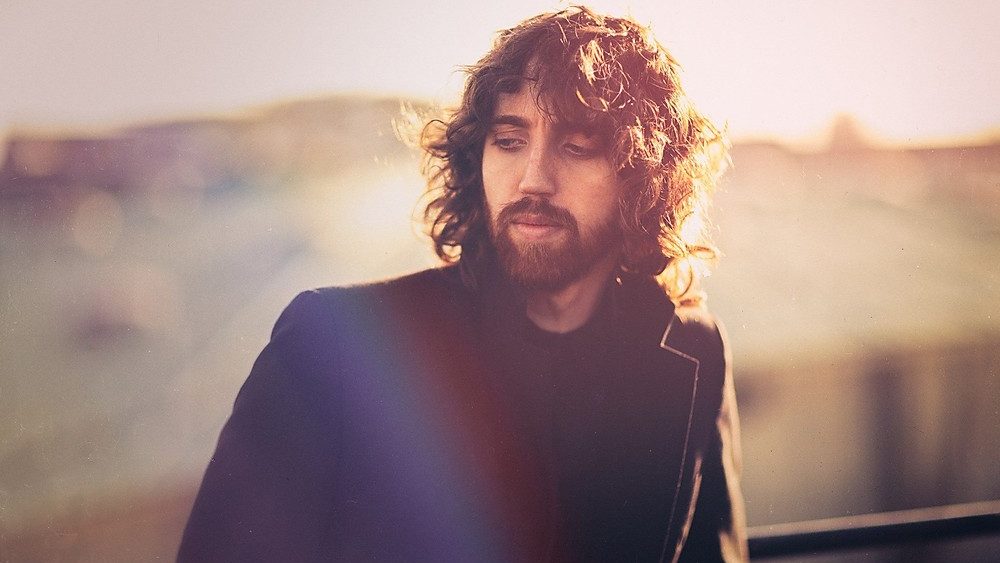Jonathan, you called your new album “Good Day.” This is a pretty positive message at a time when the world seems to be falling apart more and more. Do you want to give some hope with your music?
With this record I wanted to highlight the importance of finding some light and joy in such divided, for some, perilous times. So, the flip side of this is also important. To acknowledge and to celebrate the moments, however brief, when we’re in something great, be it happiness with our family, off travelling and being a free spirit, or as in my case with the sunshine by the canals of Amsterdam. A reset, an opportunity to take a deep breath and leave those troubles and obstacles that are so at the forefront of our lives. To be living in the present. This is how it feels.
You said that you tried to capture “the sound of people together” with your new record. How important is the relationship with your family, friends and other musicians for your creativity?
For me music is an experience away from computer screens, an opportunity to be social and conversational. Hopefully finding a common bond and joy or at least some understanding. So yes, I love that opportunity to play in the company of other musicians, other characters. It’s like good conversation; it takes at least two interesting characters to make that happen. As for computers, for me they’re useful but I’d rather perform into another’s eyes than a screen. People together, bouncing ideas, thoughts and laughs.
How should we imagine your songwriting process?
My process only begins when everyone in my house and on the street are fast asleep. You know, when the street lights are on and the foxes are out. I just feel a stillness that lets me unpack all that has happened in the day. I need this setting, the wild foxes of South London.
Is writing a daily practice for you or do you specifically start writing when you plan a new album?
I’m writing melodies in my head all day but lyrics are something that find me. I’ll be reading a book of 17th century poetry, not because I particularly like it, but it’s in the house and it beats watching TV. Suddenly there’s a thought of how poets had the ability to stimulate the mind without the need of emojis or exclamation marks!!!
Where do you get the inspiration for your songs?
My songs are inspired by the lifes of the people around and the thoughts and feelings in my own head. I’ve always been the observer, more looking in from the outside at life. I’m fascinated with human behaviour and society. Right now I can’t shake the thought how when we buy water we can request a certain fizzy bubble intensity. Imagine that, some people can’t find water. This week I’m reading of water crisis in India, parched earth. Nothing there. And yet around the corner shops have intense bubbles, median fizz or light sparkle as options. This messes with my mind.
Fashion has got us ripping our new jeans because it looks cooler. Most probably tipped by people that have ripped clothes. They must be thinking fashion is insane. Designer shoes for sale with duct tape wrapped around them to give the impression of wear. Wear at $400 a pair.
At the gym I see guys lifting the equivalent weight of a sofa on a deadlift but push a wheelie suitcase at the airport. A backpack might not be as comfortable.
Yes, human behaviour and fashion are fascinating.
Before you recorded your debut album “A Solitary Man” in 2011, you spent a lot of time in the States. Some of your new songs, especially the single “Mountain”, have a kind of dusty cinematic western touch. My first thought was “Ennio Morricone” when I heard this song. Do you still draw inspiration from your time in the US?
“A Solitary Man” was a song written about me as a security guard when I was 22. I would spend all week guarding a fire exit door without seeing anyone else. The security guy is the solitary man, but the painting in my head I’m singing about is a scene from another place, a western, or another universe. My songs help me dream of another life, my form of therapy.
How would you describe the sound of your new album?
The new record is the sound of modern soul. A soul rooted in Europe, we have a history here, a heritage, let’s embrace that I say. London has its own soul sound in the sixties and I think it’s been overlooked. Serge Gainsborough would come here to record, Scott Walker, our Dusty, Steve Winwood and the good stuff is endless.
After your US trip you returned to the U.K and spent every penny you could on your self-produced debut album. The control of the entire creative process always seems to be very important to you.
I grew up in a working class family. Back then it felt like we were almost never expected to succeed beyond a certain level. Social mobility wasn’t really that much expected. Even now old friends call me and let me know how well I’ve done. So much more than they had expected. But us working class, we use hardships and struggle as fuel, we don’t feel secondary to anyone else, we come back harder, like I try with every record. Harder and stronger each time.
A central theme of “Good Day” is the exact opposite of control: surrender. How did it come about? And how important is the balance between control and surrender for you as an artist?
The surrender for me is finding a place where I’m not fussed about external opinion, all the pressures that labels and others can put you under. Luckily I’m surrounded by a great bunch of people that help me there. So I say, surrender to what feels right, it’s that fear of drowning that will keep you buoyed. Don’t surrender to the obstacles, surrender to what brings you to life.
Jonathan, you make no secret of your nostalgic influences, many of which date back to the early 1970s. I’ve read, that Scott Walker and Serge Gainsbourg had the greatest impact upon you. Where does this fascination come from? What is special about these artists?
My dad had a big boomy voice so I’ve always felt drawn to singers with a similar timbre. Maybe there’s a comfort there. These guys always had stories to tell, almost charm in place of Rock n Roll’s rebellion.
Like your previous albums, “Good Day” convinces with its organic, analogue sound. On this album you have also worked with many excellent musicians such as multi-instrumentalist Shawn Lee and David Antony Page. What is the magic of analogue technology for you? And why are computer generated beats and auto-tune not an alternative for you?
I mentioned before, screens are for work, music is for pleasure. Surrounding oneself with great characters and joy is what life is all about.
You recorded “Good Day” at Ray Davies’ Konk Studios. Many Kinks classics were created there. Do you think that such a historical place has an influence on your own creative process?
Everyday I expect the ‘music police’ to knock on the door and tell me I’m just blagging my way through this songwriting. To think I’m sharing environments with my musical heroes is mind blowing. It’s inspiring and it helps me realise that with desire and a whole load of work, our dreams are obtainable.
A last question: You describe the Konk Studios as “a beautiful environment in which to get six or seven people together”, but you’ve managed to cram the 19-piece string and horn section of the Heritage Orchestra into this room. Was it your power of persuasion or have you always been good in Tetris?
Music is also mathematical to me. It works with balance and equation to find symmetry in what I want. So yes, Tetris. Long may the blocks come falling down.
Photo: [PIAS] Germany
This interview was first published on September 19, 2018.

